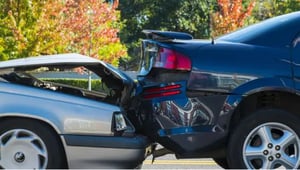Course overview
This training program explores the true value of a thorough crash investigation, allowing for the identification of trends and development of strategies to mitigate risks on our road networks. The program is designed to challenge the traditional way of thinking, adopting a more wholistic approach to investigation, and to provide real safety solutions.
This course will cover the basics of crash investigation, including: what defines a crash? What role does the human play in a crash sequence? Why is the friction coefficient of the roadway so important? It will then extend into common crash types and the underlying physical principals associated with each one; understanding the risk factors; injury and mortality rates; and remedial measures.
After understanding each crash type, the program culminates with an introduction into the Blameless Investigation. The commonality of risk factors associated with the human highlights the need for the adoption of the Blameless Investigation and the benefits that can be garnered through this type of thinking. The ability for the system to more readily predict the effect that the vehicle and environment have on a crash sequence allows for the implementation of appropriate measures to prevent and/or mitigate the associated risks, using a hierarchy of controls.
Level: Intermediate
Duration: Two Day
Delivery method:
In person
Pricing: $1650 (Inc GST)
Event contact
- Course Outline
- Learning Outcomes
- Target Audience
Course Outline
1. Introduction: Blameless Crash Investigation – The Fundamentals for a New way of Thinking · Scope of Training · Overview and Agenda · Learning Outcomes · Warning
2. The Value of Investigating a Crash · Crash Statistics; Australian Road Toll and General Trends · Defining a Crash · History of Crash Investigation · Why do we Investigate Crashes? · HVE Approach · Safe System Approach
3. Anatomy of a Crash · Terminology, Language and Referencing · Human Factors · Friction Coefficient
4. Common Crash Types · The Physical Principals involved · Risk Factors associated · Trends and Statistics · Injury and Mortality Rates · Remedial Measures
5. A Blameless Approach · The ‘Just Culture’ · Common Risk Factors · Swiss Cheese Model · Hierarchy of Controls · Blameless Investigation
6. Affecting Positive Change · Proactive v Reactive Measures · Solutions – Bowtie Model · Road Safety Pillars · Collecting Information · Affecting Change · Obtaining Zero
Learning Outcomes
LO1 Mid-level understanding of the history of crash investigation
LO2 High-level understanding of the HVE approach to crash investigation
LO3 High-level understanding of the Safe System
LO4 Detailed-level understanding of human factors in crash investigation
LO5 Detailed-level understanding of the role of friction coefficient in a crash sequence
LO6 Detailed-level understanding of common crash types
LO7 Mid-level understanding of hierarchy of controls
LO8 High-level understanding of affecting change
Target Audience
Law Enforcement · Crash Investigation Units · Highway Patrol · General Duties · Police recruits · Media unit
Local Government · Local Council safety officers/teams · Road network managers · Road asset managers · Graduates/Junior engineers
State Government/State Road Agencies · Dedicated road safety teams · Officers tasked under police with conduction of investigations of fatal and serious injury crashes on their networks, either at head office and analysing crash history data, or practically based regional staff · Graduates/Junior engineers working in road safety engineering or traffic management
Other · Media – investigative journalists, motoring journalists · Students – road-network related disciplines · Emergency services – Fire rescue, Paramedics etc. · Motor insurers · Fleet operators · Other private investigative bodies


